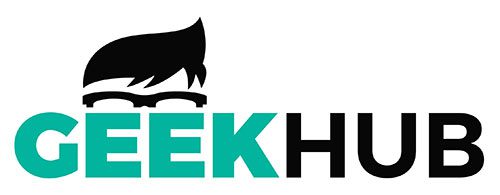Google has announced on Tuesday that it is expanding its presence in the healthcare sector, and this time around, the company is leaning into AI to enhance the dissemination of medical information, increase the productivity of scientists, and even convert your smartwatch into a lifesaving device. So what it this about?
Smarter Health Searches, Now in More Languages
We have all done it—searching for our symptoms on Google, spiraling through various options, and concluding that we are dying.
Google is trying to make that mess up by improving the AI-powered health knowledge panels which are those small boxes that provide information about conditions like flu or common cold.
The main change? The AI-powered summaries are now available in Spanish, Portuguese, and Japanese on mobile apps. At least in these languages for now, that means less people relying on faulty forums and more people getting actual, medically reviewed information.
Then there’s “What People Suggest” a new feature that is launching in the U.S. It aggregates health conversations of users — in other words, the site is harvesting the experience of the internet to provide people with the real deal. So when you are looking for arthritis friendly workouts, you may not get a decent doctor’s note but what has helped others.
A good idea, if Google can prevent the misinformation from spreading.
Health Connect Gets an Upgrade: Your Medical Records, Finally in One Place?
Google’s Health Connect platform is also evolving, with the introduction of new Medical Records APIs that enable health apps to read and write medical data such as allergies, medications, immunizations, and lab results using the standard FHIR format.
What does that mean in the real world? If you have ever been frustrated trying to manage your health care between different health apps and hospitals’ portals, this could be the end of it. More than 50 types of health data can now be synchronized between applications, which means that the much dreamed of ‘one stop shop’ for all your health information is now closer to reality.
AI in Healthcare: The Research Assistant You Didn’t Know You Needed
AI is not just for chatbots; Google is trying to apply it to medical research as well.
Meet the AI co-scientist, invented on the basis of the Gemini 2.0 model. It is intended to help biomedical researchers to formulate hypotheses faster than of of comb through large swathes of scientific literature in order to highlight trends and possibilities. Google has partnered with Imperial College London, Houston Methodist, and Stanford University, so this isn’t some random side project, it is intended to actually advance science.
And then there’s TxGemma, a set of open AI models to facilitate the acceleration of drug discovery. As opposed to conventional AI models that only work with text, TxGemma also understands the molecular structures of the potential drugs and can help researchers determine the safety and efficacy of the drugs before even involving humans in the clinical trial process.
If it works as advertised, this could be a real game changer—moving beyond the slow, methodical processes that have long characterized scientific investigation and, in turn, helping to reduce the time it takes to develop new treatments and move them to the market.
Pixel Watch 3: A Smartwatch That Could Actually Save Your Life
Google is also bringing some serious health monitoring to wearables. Loss of Pulse Detection, an FDA cleared feature, is set to be available on the Pixel Watch 3 to help detect sudden changes in pulse due to cardiac arrest or respiratory failure.
Here’s the kicker: if the watch detects a problem and you’re unresponsive, it can automatically call emergency services. That’s a huge step up from the basic heart rate tracking, it makes the wearables real emergency response tools. The feature is available in the U.S. by the end of March.
Final Thoughts: Is This the Future of Healthcare or Just Another AI Hype Cycle?
Google’s new healthcare initiative is quite elaborate; more languages for health searches, easier access to medical records, AI based research tools, and a smartwatch that can literally save lives. But, as always, execution is everything.
The problem with AI generated health information is that it has to be accurate and must be controlled to avoid people coming up with the wrong conditions.
Medical research AI looks good on paper but does it really deliver in helping achieve scientific breakthroughs or is it just a way of producing a lot of AI tut?
Wearable health tracking is a great idea in theory, but reliability is key – can the Pixel Watch 3’s new feature actually work reliably when it most needs to?
If Google can manage this, then it will be a real step towards AI based healthcare that can actually make a difference. If not? Well, it wouldn’t be the first time that Big Tech promised the future and offered something rather more prosaic.
